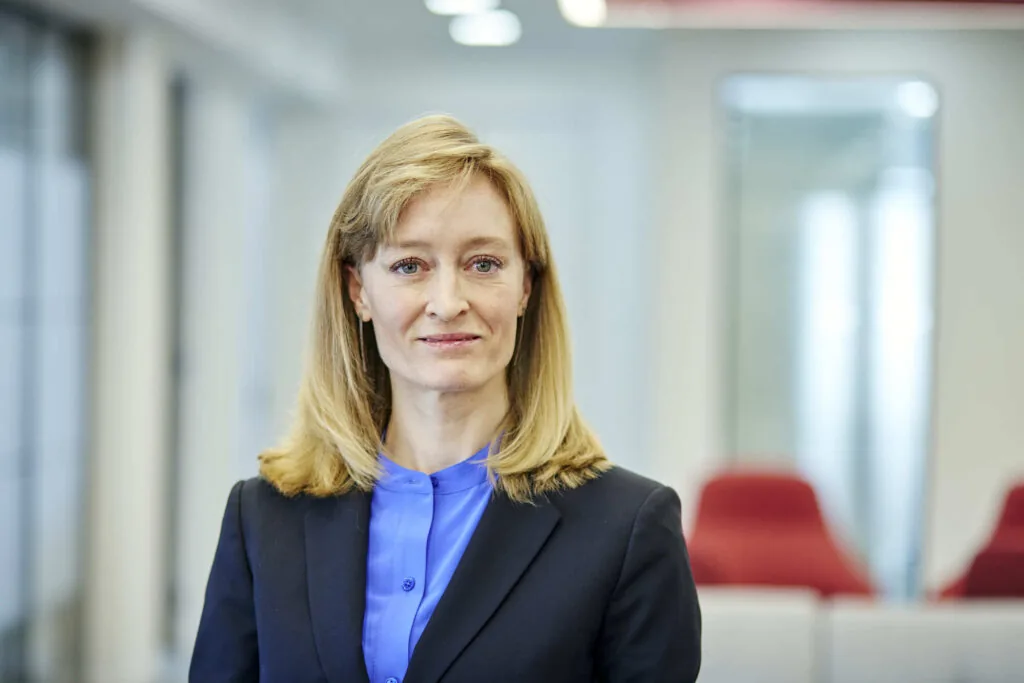
UK space sector skills shortage: How can organisations develop talent?

By Gemma Robinson, Halo Garrity
18 Jan 2024 | 3 minute read
We've written recently about retaining the space sector staff that organisations already have – but how do you ensure you recruit the people with the right skills to start with? We explore how to recruit and train those with promise, using the Astroscale Graduate scheme as a case study.
The current situation
The latest space sector income report shows that the growth of the UK space sector is a rapid success story – space sector income grew by almost £1billion into 2021 and the number of space organisations has grown by nearly 300. The sector growth is projected to keep climbing over the next five years.
Employment in this sector is consequentially up, with almost 1,800 more jobs. The successful growth in this sector has however outpaced the personnel available. The Space Sector Skills Survey 2023 shows a critical skills shortage with companies reporting difficulties with recruitment, and retention issues that are inhibiting company growth, productivity, and quality.
The UK Space Agency is taking steps to address this; investing £15million through its Inspiration Programme to deliver education, skills, and outreach interventions over the next two years. Whilst useful to build pipeline of personnel this will not address the immediate needs of the sector.
The Skills Survey shows that 80% of companies faced recruitment difficulties. Two thirds (72%) of roles were difficult or very difficult to recruit for. The average role took a median of 10 weeks to hire for.
The overall effect is that nearly every space organisation (95%) has experienced skills-related challenges in the last 12 months.
Finding the right people
Ineffective job adverts hamper recruitment efforts. Space sector businesses could consider asking for skills rather than degrees or years of experience – a regular lament is that graduate starters can be academically excellent but lack technical skills.
Making it easy for career changers to move into the space sector has the dual advantage of increasing the number of possible applicants, and potentially recruiting employees with a wealth of experience. Many of the skills needed are transferable and the space element can be taught. Recruiting people with non-traditional backgrounds opens a new pool of potential recruits.
Programmes such as Redeployable are a possibility to consider; helping career changers from the services transition to civilian employment.
Being open to recruitment methods and talent pools that are not the standard greatly increases the chances of finding the right employees in a competitive field.
Growing the skills you need: apprenticeships and placements
An option for businesses struggling to find employees with the exact needed skillsets is to provide apprenticeships, placements, internships, and graduate schemes to grow the required skills in the right people.
This is a time, cost, and labour-intensive option. The cost of the training involved may well equal the salary being paid. Programmes range in length from a few weeks to over five years and require managing throughout.
In this field Airbus offer a Level 6 Space Systems programme which leads to a BSC in space engineering from the University of Leicester. QinetiQ also offer a Level 6 Aerospace Apprenticeship which leads to an engineering bachelor's degree. Thales offers apprenticeships at various levels, although these do not run every year in all areas.
For those unable to offer multiple yearlong apprenticeships that lead to bachelor's degrees one option is to consider a shorter-term internship or placement. The year in industry supports Space Placements in Industry (SPIN). This programme is managed by the UK Space Agency and supported by Satellite Applications Catapult.
SPIN is actively encouraging enquiries from potential host organisations who have a short-term project (circa eight weeks duration) and who want to offer students the opportunity to gain new skills and an insight into business. Grant funding may be available from the UK Space Agency to support a SPIN placement and there is also general funding available through a competitive grant process.

Case study: Astroscale graduate scheme
Astroscale launched its first ever graduate scheme in 2023, since then it has taken 13 graduates and will immerse them in a multidisciplinary environment where they will gain hands-on experience and training in a range of satellite engineering fields. They will gain experience in systems engineering, flight software, guidance navigation and control, mission operations and flight dynamics among others.
We caught up with Bethan McAulay, the person responsible for hiring the best and the brightest for Astroscale and for the graduate scheme.
How is the scheme funded?
Astroscale is running its graduate scheme with no external funding; all the costs are being met by Astroscale internally. Bethan feels that at the moment there doesn’t seem to be a big appetite from institutional bodies to support graduates, though she is hoping that this will start to change, as Astroscale can celebrate the achievements of their first graduate class.
How big does an organisation need to be to run a graduate scheme?
Bethan: “I’m not sure there’s a blanket answer as to how big a company needs to be in order to support something like this, will/want definitely plays a factor I know many larger space companies who don’t and won’t offer grad schemes despite having significantly more engineering and other resource to support it than we have at Astroscale at the moment. Equally there are smaller organisations hiring grads ad hoc (which we’ve also done for a while) which is still valuable, even without the full structure of a graduate scheme.”
Does the scheme interact with any external programmes?
Bethan is a big fan of the SPIN scheme, and they’ve used it at Astroscale for three or four years with plans to continue into 2024. Astroscale has found it simplifies some of the additional workload around the administration, and the financial support offered by UKSA through the Catapult also removes one of the barriers to entry not just for organisations, but also for students since they know it’s not an unpaid burden/opportunity.
What are some of the benefits of running a graduate scheme?
Bethan: “Retention is often higher on the mind of most HR teams, than recruitment, and for good reason! It’s an expensive mistake if you can’t keep hold of good employees – both in actual cost but also time, effort and reputation.
“I would like to think that for our existing employees they see the graduate scheme as a demonstration of Astroscale’s willingness to support the development and growth of our people, and so that may encourage them to stay and ask about opportunities internally rather than assuming that they have to move on for their next step.
“The other side of the coin, and something the European Space Agency (ESA) have always done very well, is appreciate that not all leavers are a bad thing. It’s uncommon for ESA to hire its Young Graduates Trainees on a permanent basis after the half year program, and part of that is that they want them to take what they’ve learned out into the wider industry and get some other perspectives.
“So whilst we’d love for all 13 of our grads to have had such an amazing two years, they want to stay working with Astroscale, there’s also huge value in them going elsewhere (hopefully still within industry) and adding to their experience. The benefit of space is that it’s a really small world, and so eventually we cross paths again whether that’s as customers, partners, or through the supply chain.”
Our advice
Applicants should heed the advice from space organisations to "get your hands dirty" in internships, societies, clubs, and any opportunity to complete hands on technical work. Space sector businesses should consider how they recruit, and whether there is the potential to offer schemes that would grow the talent they need. Our employment team has a wealth of knowledge to share regarding business immigration (sponsorship and visas) which may be relevant to your recruitment process, how to recruit in a compliant way and how to legally take positive action and aim for diversity in your recruitment process.











